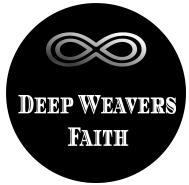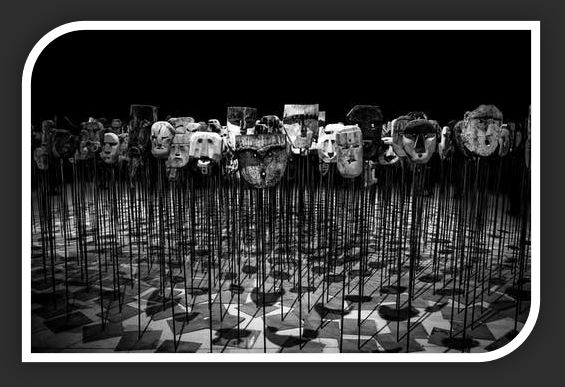H2O = Water
SiO2 = Glass
KT = Ko Takamine
Life = a Journey, a Promise, and an Environment
Journey of the Spirit uniting the Soul. Elective.
Promise of Service to a meaningful connection with fellow man. Elective.
Environment. Everything else (98% of life). Broken and unbroken.
Like a haiku or cherry blossom, KT’s Sacred Reunion captures the simplicity of the Spiritual Journey – soul returning to the warmth, purity, love, and innocence it felt newborn. Be You – Sacred Reunion
Promise is not so easily limned. The best example in life is Albert Schweitzer; or in written form, J. D. Salinger’s 1955 masterpiece, Franny and Zooey. Why Salinger? Why Franny and Zooey? Because a successful Spiritual Journey, in this writer’s opinion, is merely the introduction. See God, face-to-face. Taste God’s tears. Hear God, ear to burning bush. Have a glass of wine with the Lord. Maybe some bread and cheese. Merge your soul into infinity. And so what? What then? It’s all about self. Where’s the profit? What Good does it do for a person to scale Mt. Everest if they see nothing in it to help their fellow man? Nothing in it of service and mercy. It’s Environment. Just Environment. Salinger manifested it: Faith alone, without works, soul without Love, being alone, is depressing.
This is Environment:
Oh! that the Desert were my dwelling-place,
With one fair Spirit for my minister,
That I might all forget the human race,
And, hating no one, love but only her!– Lord Byron, Childe Harold, 1810.
My mother loved J. D. Salinger, and grieved in her heart that he stopped publishing so young. She saw something, but couldn’t quite get it, to tell me. What I see is a bridge from morning in KT’s oasis to afternoon and evening with the French philosopher, Emmanuel Levinas, who taught us the wisdom of love (rather than the love of wisdom), with faith based on “ethics as first philosophy” – an infinite responsibility first toward the Other (Salinger’s “Fat Lady”), preceding any “objective searching after truth.”
How can I put it without looking like a fool (or a communist)? And put it succinctly? Maybe it cannot be done.
Franny and Zooey, for those of you unfamiliar, is a tale of spiritual crisis and catharsis at age 20 (for Franny Glass), and age 25 (for her brother, Zooey Glass). She is home now from college (to her parent’s Upper East Side apartment), presently sleeping on the couch in their living room between pink percale sheets, and covered with a pale blue cashmere afghan. The sun is shining in, beautifully – full on Franny’s jet black, fashionably short-cut hair. Zooey (a quite successful TV actor) enters, sits on the marble coffee table next to the couch, and gently takes hold of his sister’s shoulders. “Let’s go, buddy”; and one of the most beautiful brother-and-sister bonding stories of all time unfolds.
“I got the idea in my head” Franny tells her brother, “and I could not get it out – that college was just one more dopey, inane place in the world dedicated to piling up treasure on earth and everything. I mean treasure is treasure, for heaven’s sake. What’s the difference whether the treasure is money, or property, or even culture, or even just plain knowledge? It all seemed like exactly the same thing to me, if you take off the wrapping – and it still does! Sometimes I think that knowledge – when it’s knowledge for knowledge’s sake, anyway – is the worst of all. The least excusable, certainly…. I don’t think it would have all got me quite so down if just once in a while – just once in a while – there was at least some polite little perfunctory implication that knowledge should lead to wisdom, and that if it doesn’t, it’s just a disgusting waste of time! But there never is! You never even hear hints dropped on a campus that wisdom is supposed to be the goal of knowledge.” Pages 145-46.
Zooey – a brightly successful but personally unfulfilled TV actor – is experiencing a similar kind of existential frustration, misdirected, unfruitful search for substance in his life. And the elephant in the room with the two of them is the unresolved impact of their oldest brother Seymour’s unexpected suicide (at age 31) seven years earlier – shooting himself in the head one March afternoon in his and his wife’s Florida hotel room on their second honeymoon – his wife napping on the bed next to him. Why would such a beautiful, beloved soul do that? Leaving family dazed, confused, bitter, and angry.
It’s fair to say that not many things rip at the fabric of family life more viciously than the suicide of a child. Seymour, the oldest of the Glass siblings. Seymour – child prodigy; a brilliant intellectual; a professor at Columbia at age 20; one of the most notable young American poets of the day. All seven of the Glass children, in fact, were geniuses. Born brilliant. Featured from 1927 to 1943 on a fictional radio show called “It’s a Wise Child.” Each of them growing up in an eccentric family culture centered around a mix of Eastern and Western religion and philosophy, fostered, in large part, by the two oldest boys. Not arrogant in their intelligence. Or in their vast exposure to the world’s greatest works of literature, religion, humanities, and philosophy. Or maybe they were.
(Like J. D. Salinger, their creator, the Glass children were imbued with something akin to a near-pathological introversion. Salinger, on his part, published his enormously successful first novel, The Catcher in the Rye, in 1951; and within 14 years – much to my mother’s dismay – completely gave up publishing altogether. Maybe Seymour’s death had something to do with that, too.)
Franny – coming upon The Way of the Pilgrim in Seymour’s room – has embarked on a self-imposed immersion into non-stop prayer-whispering, leading her to spells of inattention and to a worrisome aversion to eating. The Jesus Prayer: “Lord Jesus Christ, have mercy on me.” Short explanation:
In The Way of the Pilgrim a Russian peasant with a withered arm begins searching everywhere for a prayer he’s heard about. About praying incessantly. The peasant finds the Jesus Prayer, learns it, and recites it ceaselessly, soundlessly on his lips, until it merges with his heartbeat, repeating itself automatically within him. Like breathing in and breathing out. Until eventually something happens. In Eastern terms, there are seven nonmaterial centers in the body, called chakras; and the one most closely connected with the heart is called anahata – sensitive and powerful as hell – which, when activated by the prayer, lights up the center between the eyebrows, the pineal gland – actually the aura around it – the “third eye” – and the light of understanding comes in. Like losing mind and body in a walking trance.
Having thus embarked on this Seymour-like quest to discover God, wisdom, and solace, Franny finds herself, the weekend before on a date with her college boyfriend, sitting in the ladies’ room of Sickler’s restaurant, breaking down crying, like the cliché, her eyes out, for five minutes, and later fainting.
Salinger takes Franny and Zooey on a bumpy ride, with many more tears, Franny’s lips continuously moving soundlessly, toward Zooey’s epiphany. Something of love he’d learned from Seymour on the radio show years before:
Even though you can’t see her, play your heart out for the Fat Lady. Who is??? The Glass family metaphor for fellow man. But not just any fellow man. A member of the human race of lesser social importance, maybe even hard of hearing and dying of cancer, who nevertheless is of equal value. The Fat Lady. Contentment comes from knowing you’re doing you level best for her and everyone (my mother included) in all you do. Without it living is inevitable vanity, arrogance, and depression. At least for those, like the Glasses, who know better.
Because the Jesus Prayer is just another way of piling up treasure. A different kind of treasure, admittedly, but treasure nevertheless. Vintage Salinger. A damn great writer. A damn great story. Read it.
Two miles high, Salinger is something of a metaphysical marriage between Christ-likeness and Zen Buddhism. Not Nirvana. Not non-caring. Not how Salinger distanced himself from pain and disappointment by retreating from publishing. Not how Franny retreated into the Jesus Prayer. Not Zooey’s retreating into perpetual cynicism. Not Seymour’s retreat from suffering in life by ending it all. Instead, by holding tight to caring. For pain and for Seymour. Doing Goodness. Performing your role in life by always reaching out to the Fat Lady.
What makes you closer to God, which is the same thing that makes you closer to yourself, is taking what you see to make it be. The beautiful 2% of life that makes all of life genuinely worthwhile.
Like poetry. To be a real poet you have to leave something beautiful at the end of the page. Then it’s the reader’s job to complete their half. For that’s what good poetry is: Delicate as glass. Half what the poet writes; half what the reader completes. The blending of souls. The capturing of what little or much of wisdom there is in the world.
Is this a poem?
The little girl on the plane
Who turned her doll’s head around
To look at me.
Or?
I have a young loved one myself,
one of my own,
not all that foreign from Franny,
who felt for a while there wasn’t much left to live for,
seeing as how the planet is damaged beyond repair.
Until they realized that it’s enough:
To dedicate their life to making the save,
releasing to the heavens whether it will be or not.
Or?
Franny, when she was a toddler, was sure she could fly,
because when she came down
she always had dust from the light bulbs on her fingers.


Unconditional Love is more “Heaven” to me than heaven; more “Nirvana”
to me than enlightenment.
Thank you for mentioning my poem “Sacred Reunion” in your thought-provoking article. Every one of us is on the Spiritual Journey on our own, climbing a craggy mountain crowned with an unseen place called Heaven or Nirvana which serves as the destination or goal in our mind.
The purpose of your life, however, is not to reach there; Rather, you should work for the “Fat Lady” out there, who is not necessarily in your life but waiting for your attention, help, or energy. That’s called “Unconditional Love” – selfless care for others. Thank you for the great piece. I learned a lot.